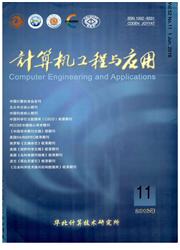

 中文摘要:
中文摘要:
近年来,内容服务提供商提出离线下载的缓存服务解决方案,旨在大幅度提升对等(Peer-to-Peer,P2P)文件传输性能,解决长期以来由拓扑失配所导致的性能下降问题。而实现缓存服务解决方案的关键在于对P2P协议的分析。针对在南美区域较为流行的ARES协议展开技术研究。首先采用小波支持向量机模型将ARESP2P协议报文从抓取到的网络报文中进行分离,然后综合各类逆向协议分析的方法和技术分析出完整的ARESP2P协议报文格式和报文发送时序。最后,通过ARES离线下载实验验证ARESP2P协议分析的正确性和完整性。
 英文摘要:
英文摘要:
Recently, the content service providers propose the offline-download caching service solutions to significantly enhance the P2P file transfer performance and eliminate the effect of topology mismatch. The key issue of the caching service solution lies in the analysis of P2P protocols. In this paper, the popular ARES protocol in South America is deeply studied. Firstly, the proposed wavelet support vector machine model is used to separate the ARES P2P protocol packets from the captured network packets. And then, various reverse protocol analysis technologies are used to analyze and identify the ARES P2P protocol message formats and the time sequences of messages. Lastly, the correctness and completeness of the ARES protocol analysis are verified by the ARES offline-download experiment.
 同期刊论文项目
同期刊论文项目
 同项目期刊论文
同项目期刊论文
 Dynamic Resource Discovery Based on Preference and Movement Pattern Similarity for Large-Scale Socia
Dynamic Resource Discovery Based on Preference and Movement Pattern Similarity for Large-Scale Socia 期刊信息
期刊信息
